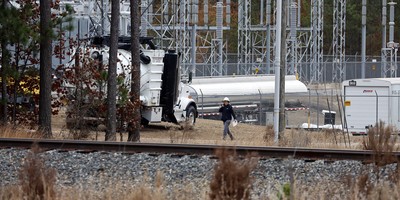It was bittersweet watching one of my all-time favorite shows, Taylor Sheridan’s Yellowstone, ride into the sunset last week. The ending was beautifully poetic, foreshadowed by a scene with characters from 1883, its spinoff prequel, yet longtime lead Kevin Costner’s inexcusable absence cast a Montana-sized shadow over the otherwise well produced final six episodes.
If you’ve never watched Yellowstone, you should probably stop here and start watching the show from the beginning. It’s well worth your time, especially for the brilliant ways the show pays homage to the past and the people who practice a way of life that is quickly fading away in America.
I enjoyed the plotlines, but the quiet scenes on the ranch or the rowdy, often hilarious ones in the cowboy bunkhouse were every bit as enjoyable, if not moreso. Those characters were as likable and relatable as any I’ve ever seen on the small or big screen, and that speaks not just to Sheridan’s writing, but also his choice to often put real cowboys in acting roles for which they are perfectly suited, lending an authenticity that’s hard to find in Hollywood these days.
After watching the finale, which saw Beth and Kayce avoid the crippling inheritance taxes that came with their father’s death by selling the ranch to the Natives for a pittance and a promise that their ancestors would be honored and the land would be protected from development, I had my own opinions but was particularly interested to find out what my fellow right-wingers thought.
I had a feeling where they would go, and I was right:
“Final Yellowstone episode was Natives dismantling the ranch, taking off the Y, pulling it all down,” Jack Posobiec posted on X. “If you don’t see this as overtly politically leftist, congrats, you got sucked in by Hollywood. Just like they always planned.”
Recommended
J.D. Sharp called the show “a 5 year psyop to normalize powerful white landowners being forced to abandon their property.”
“What did we learn after 5 seasons of Yellowstone and multiple spinoffs? Sacrificing to protect land for your family is pointless and Christians are evil,” wrote Jeff Hunt.
There were plenty more reactions like this from our side, and to be fair I completely understand the sentiment. A key tenet of leftism, after all, is the supposed return of land to so-called “indigenous peoples,” even though every inch of livable land in the world has been conquered, purchased, reconquered, and repurchased countless times throughout human history. Yet, the only people under pressure to give away everything is, you guessed it, white people. So the sensitivity on this issue from our side, especially regarding a show that in so many other ways is decidedly the opposite of ‘woke,’ is understandable.
But, in this particular narrow case, I tend to disagree. If you watch the prequels and the rest of the original show, you will notice a vein that runs throughout - love and appreciation for nature and the beauty of the land. The Duttons, though undoubtedly wealthy from being the first to claim such a massive parcel in such a rich area, had but one goal in mind throughout, to properly steward the land and keep it from being ruined by development. (And if someone had to make a visit to the "train station" in furtherance of this goal, so be it!) This was a goal that was also shared by the nearby Indians led by Chairman Rainwater, and both sides, though at times adversarial, often joined forces when confronted by outside influences that seeked to develop the land.
Turns out, I’m not alone in this view. Conservative commentator Dana Loesch expressed similar sentiments and brought up a poignant final scene that would never have made the cut if the director was as woke as he is accused of being:
“The last episode of Yellowstone was great for the people who actually watched it,” Loesch wrote. “The tribal elders and the Duttons realized they were on the same side all along and Mo defended the family's sacrifice for the land.”
Indeed, woke grave desecrators and statue destroyers would have cringed at a scene of one of the coolest and most likable Native American characters in the history of television absolutely berating a group of ignorant Native kids for pulling down the gravestones of white people.
Yellowstone ended exactly as it was foretold in that prequel scene where the Indian chief at the time, after granting the Dutton ancestor the land, prophesied that it would be returned to the Natives in seven generations. “In seven generations, you can have it,” James Dutton, played by Tim McGraw, wryly replied.
From beginning to end, Yellowstone wasn’t about ‘woke.’ It was about cowboys and Indians and cattle and ranches and rodeos, but most of all it was about stewardship of the land and (mostly) good people, for better or for worse, trying to beat back the tide of progress. And it was perfectly summed up by the words of 1883’s Elsa Dutton hauntingly coming to life in the present day:
“Men cannot truly own wild land, to own land you must blanket it in concrete, cover it with buildings, stack it with houses so thick, people can smell each other’s supper. You must rape it to sell it. Raw land. Wild land. Free land can never be owned. But some men pay dearly for the privilege of its stewardship. They will suffer and sacrifice to live off it and live with it, and hopefully teach the next generation to do the same. And if they falter, find another willing to keep the promise.”

























Join the conversation as a VIP Member